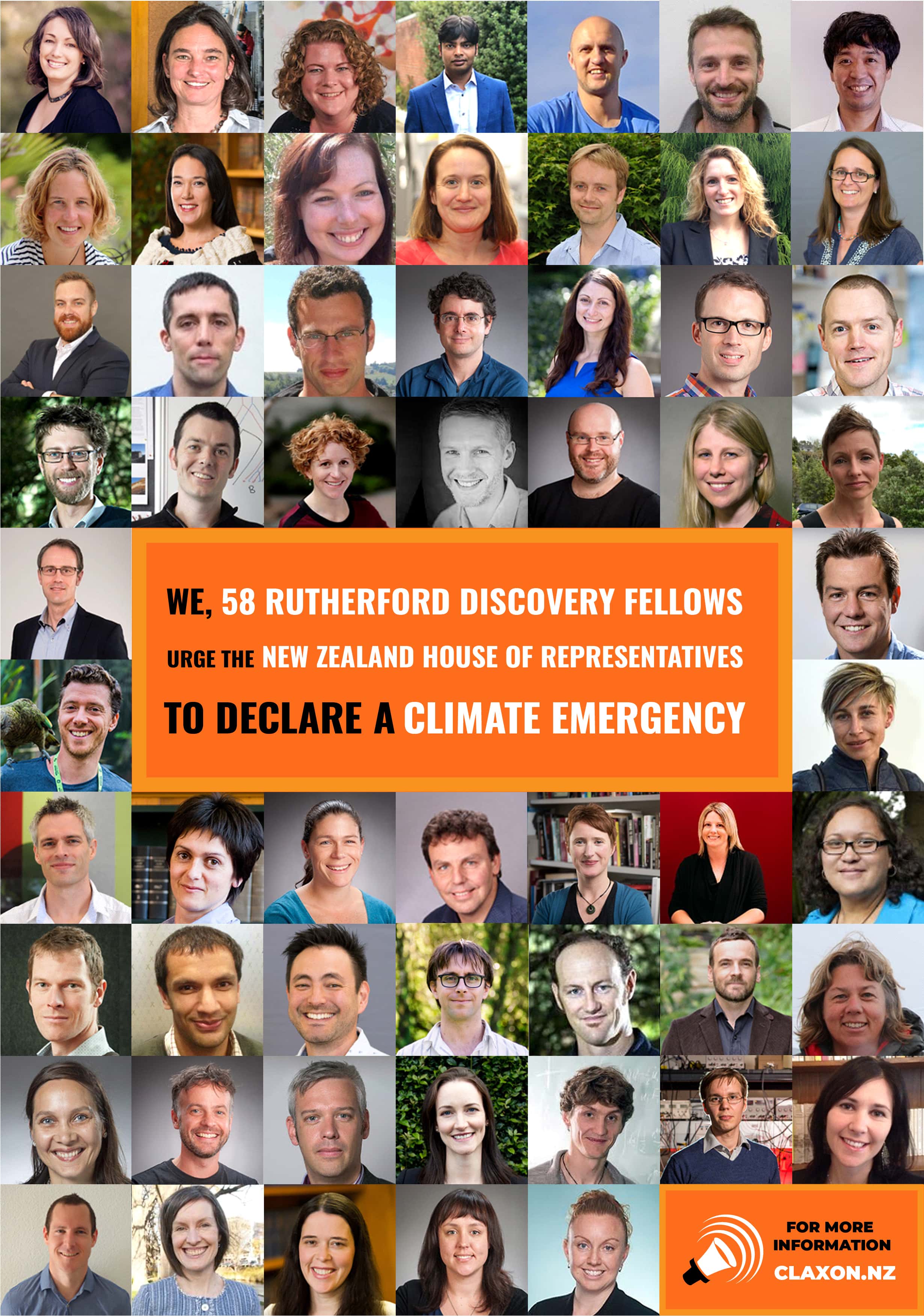
|
|
|
The scientific consensus is that the world stands on the verge of unprecedented environmental and climate catastrophe for which we are little prepared, and which affords us only a few years for mitigating action.
More than 50 of New Zealand's top researchers have signed Claxon

Why this is an emergency
Human-induced climate change creates an unprecedented risk of collapse, yet government
response continues to fall below the threshold necessary to avoid it. While reports from the
IPCC call for ever more urgent action, they reflect the conservative end of the science. The
global, irreversible nature of climate change elevates risk of loss to an unacceptable level,
mandating extreme, emergency-level action. New Zealand must now lead by example.
Click on a statement for more information.
Click on a statement for more information.
References
